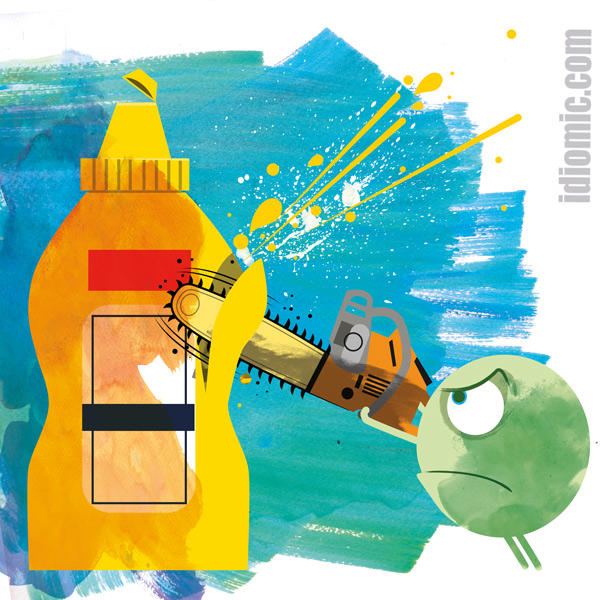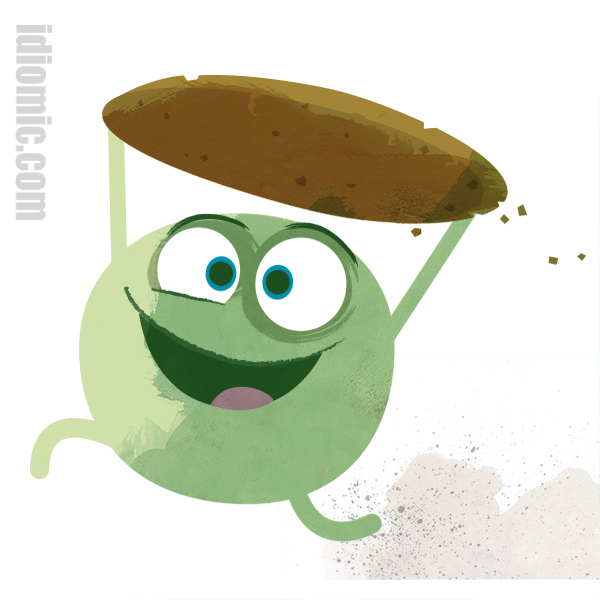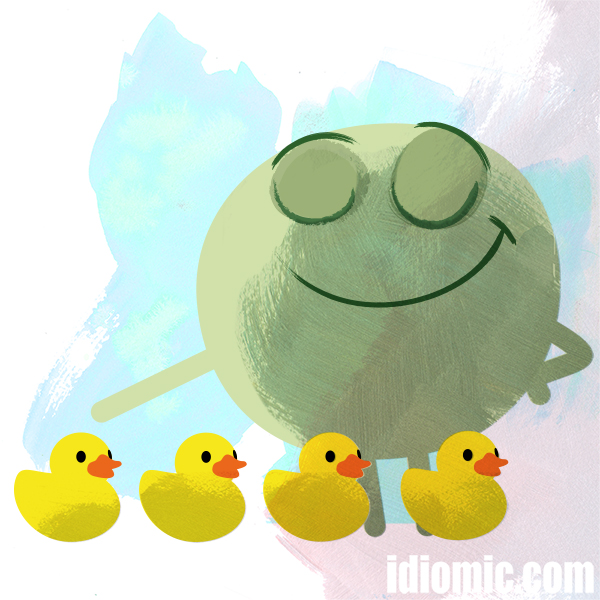Definition: To think differently or from a new perspective
Example: Lloyd really had to think outside the box to find a believable explanation for his lack of trousers at the church service.
Origin:
There are a number of variations on this idiom. You can think ‘beyond the box‘, ‘out of the box‘, or in Australia, ‘outside the square’.
Its origin appears to come very late in the history of the English language, specifically from business speech in the 1970s and 80s. A popular on the spot challenge in management companies was solving the ‘9 dot puzzle‘, where you had to attempt to join the 9 dots of a grid with 4 straight lines- no lifting of the pen or retracing of lines allowed. The puzzle itself is much older, first appearing in print in 1914. The solution to the challenge (spoilers ahead!) is using the lines beyond the extent of the dots themselves, or the perceived box they form.
Iddy appears to be thinking very hard indeed outside of this particular box. He is. That’s because he’s been kicked out of his apartment by his landlord for practising the tuba in the early morning hours. If he doesn’t think of a solution to his problem, he’s going to be sleeping in that box tonight. And there’s no room in there for his tuba.











